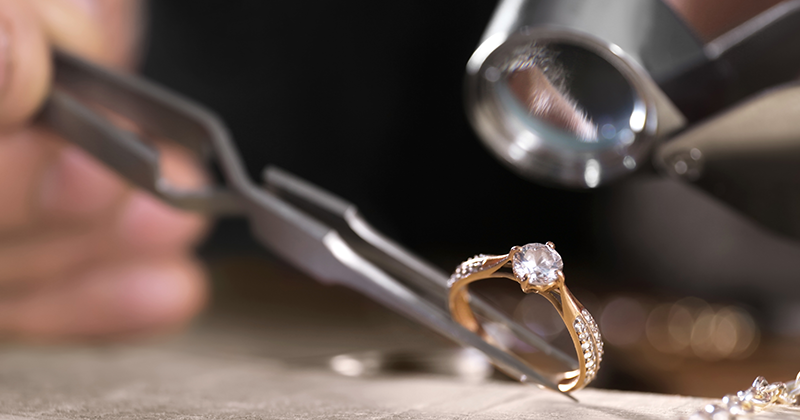Some of the most expensive possessions in your home, such as a diamond engagement ring, a vintage watch, or a black pearl necklace purchased on your vacation, may be safeguarded. Most people have a comprehensive insurance policy that covers their home and furnishings, but this does not necessarily mean that every object under your roof is covered.
In fact, some policies expressly state that jewelry and other valuables are not covered (musical instruments, artwork, and furs among them). Other policies restrict coverage to specific types of occurrences and a set price amount. This amount of coverage can be woefully inadequate, especially if you want to replace an item that has dramatically increased in value since its purchase.
Essential jewelry insurance tips:
- Many insurance policies will not cover jewelry unless specifically requested, in which case the rate must be changed.
- Jewelry is frequently not directly replaceable, so when considering a policy, be sure to mention appreciation and replacement regulations.
- Having the item appraised is a good option if it is exceptionally valuable.
- Insuring jewelry does not imply storing it in a safe. Feel free to wear it more often now that you know it’s safe.
Jewelry insurance is essential if you have significant assets of this type. It takes over when standard insurance coverage stops and often covers the insured item against fire, loss, theft, or damage. It is known as a “rider” or, more particularly, a “floater” (which targets tiny, mobile things). It should be noted that these restrictions may not apply to other assets that aren’t considered jewelry. A watch, for example, may require coverage from one of the best jewlery insurance companies now available.
The majority of big insurers do not provide jewelry coverage as a stand-alone package (an underlying property insurance policy is required). Owners of valuables, on the other hand, can add coverage to their existing homeowners insurance policy. In fact, most well-known insurers require special care for high-end assets.
When looking for the best jewelry insurance policy, keep the following questions in mind:
- How are claims processed? Will you have to buy a replacement first and then request reimbursement, or will the insurer issue you a check first?
- Is the entire replacement cost of the item covered? How is that figure arrived at (particularly if the object is ancient or handcrafted)?
- What is the engagement ring insurance cost and factors that come into play?
- Do coverage limits fluctuate with the price of precious metals or gems?
- How frequently should/can you submit new appraisals?
- What kind of proof of loss or damage will be needed?
- What are the policy’s exclusions? What sorts of loss and damage are not covered?
Daily care and maintenance tips:
Whether you own a million-dollar ring or less valued jewelry, we recommend following these tips:
Storage
Never store your most expensive possessions in your bedroom. Purchase a secure home safe that is fire and thief resistant, or store valuables in a bank vault.
Travel
There are only two safe options when traveling. Keep valuables with you at all times, or utilize the hotel safe (not the safe in your room). Never bring jewelry to the pool or beach, and never wear it.
Watches
Replace any cracked or scratched crystals right away. Even little cracks might allow dust and moisture into the watch, reducing its accuracy. Check your watch clasp on a regular basis to ensure a secure connection and to prevent accidental loss.
Diamonds
When cleaning your diamonds, only use a mild detergent or a sudsy ammonia bath. Never let your diamond come into contact with chlorine bleach, as it will pit and discolor the mounting. Check your prongs and mountings on an annual basis, since wear and tear might cause a stone to become loose. To avoid unintentional scratches, keep your diamonds away from other jewelry.
Pearls
To avoid pearl strings getting stretched, weakened, or stained, have your pearls cleaned and restrung on a regular basis. Wipe pearls with a soft towel after each use because perfume, cosmetics, hairsprays, oils, and chemicals on your skin can damage the quality over time. To protect pearls from scratches, keep them in a soft fabric pouch.
Conclusion
Customers who acquire multiple policies from the same insurance company usually receive a discount. You are more likely to get a better overall bargain if you get your house, auto, life, and property insurance from a single provider.
If you don’t have homeowners’ or renter’s insurance, you might be able to get stand-alone coverage from a provider that specializes in insuring jewels. Some jewelers provide such policies or can refer you to a company that does.
Last but not least, just because you’re protecting your stuff doesn’t mean you can’t wear it. On the contrary, if you insure your costly items, you will be able to use and appreciate them even more knowing that they are fully protected.








Add Comment